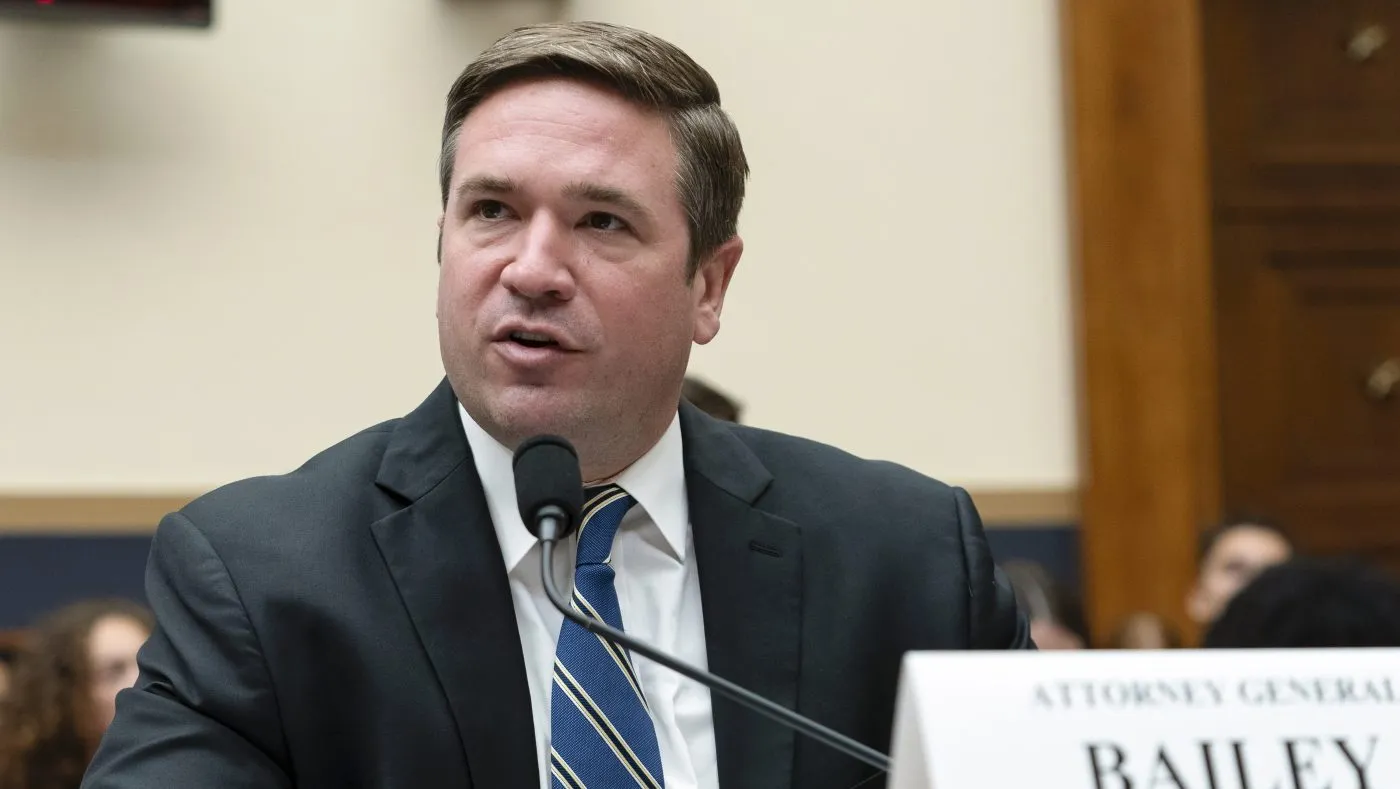Missouri Attorney General Andrew Bailey, along with attorneys general from six other states, has filed a lawsuit to prevent the implementation of a federal rule introduced by the Biden administration.
This rule expands nondiscrimination protections to include transgender individuals, a move that has sparked significant controversy and legal challenges. The states joining Missouri in the lawsuit are Arkansas, Idaho, Iowa, North Dakota, South Dakota, and Utah.
The contentious rule stems from changes made to Section 1557 of the Affordable Care Act (ACA) by the Department of Health and Human Services (HHS) in May. These changes redefine sex discrimination to encompass discrimination based on sexual orientation and gender identity.
Under the new rule, healthcare providers and insurers are prohibited from denying care or coverage for gender-affirming procedures, effectively ensuring that transgender individuals receive the same protections against discrimination as other protected groups.
Attorney General Bailey has been vocal in his opposition to the rule, arguing that it oversteps legal boundaries and imposes federal mandates that infringe on state rights and individual freedoms. In a press release, Bailey stated, “Joe Biden is once again exceeding his legal authority to force his radical transgender ideology onto the American people.”
He accused the administration of using federal funding as a lever to enforce compliance, thereby threatening the financial stability of healthcare providers who refuse to adhere to the rule.
The lawsuit, filed on the heels of a preliminary injunction granted by a federal judge in Mississippi, underscores the intense legal battles surrounding this issue. The Mississippi judge’s injunction temporarily halted the rule, which was set to take effect on July 5. This initial legal victory for the rule’s opponents has encouraged other states to launch their own challenges.
The implications of the rule are significant, as non-compliant states and healthcare providers risk losing access to critical federal funding for programs such as Medicare, Medicaid, and the Children’s Health Insurance Program (CHIP). The lawsuit contends that this would disproportionately impact low-income communities, which rely heavily on these programs for essential healthcare services.
In their lawsuit, the states argue that the Biden administration’s extension of ACA protections to transgender individuals lacks a solid legal foundation. They claim that when they began participating in federally funded programs like Medicaid, Medicare, and CHIP, there was no mandate to provide gender-affirming care. Therefore, the new rule imposes unforeseen and undue burdens.
The Human Rights Campaign (HRC) and other advocacy groups have staunchly defended the rule, asserting that it is a necessary step towards ensuring equal treatment for transgender individuals in healthcare settings.
Kelley Robinson, President of the HRC, condemned the ongoing legal efforts to block the rule, stating, “The discrimination LGBTQ+ people will continue to experience under this injunction is indefensible. Everyone deserves access to the medical care they need to be healthy and thrive.”
Supporters of the rule argue that it aligns with the Supreme Court’s 2020 decision in Bostock v. Clayton County, which held that discrimination based on sexual orientation or gender identity is a form of sex discrimination prohibited by Title VII of the Civil Rights Act of 1964. This landmark ruling has been cited by the HHS as a basis for the updated definition of sex discrimination under the ACA.
The conflicting rulings from different federal courts could accelerate the issue’s journey to the U.S. Supreme Court. The Mississippi case falls under the jurisdiction of the 5th Circuit, while Missouri’s lawsuit is within the 8th Circuit. Divergent decisions from these circuits could create a legal impasse, prompting the Supreme Court to resolve the matter and establish a uniform standard nationwide.
As the legal battles unfold, the outcome of these cases will have profound implications for healthcare providers, transgender individuals, and the broader debate over the scope of federal nondiscrimination protections.
Read More:
- Governor Brad Little Issues Order to Temporarily Settle Idaho Water Dispute!
- Idaho’s Voter Registration Faces Stricter Rules in Governor’s New Order!
- Attorney General Wants to Get Involved in Blaine Amendment Lawsuit!
The Biden administration remains committed to defending the rule, emphasizing that it is a crucial step towards ensuring that all Americans, regardless of gender identity or sexual orientation, have access to essential healthcare services without fear of discrimination.



